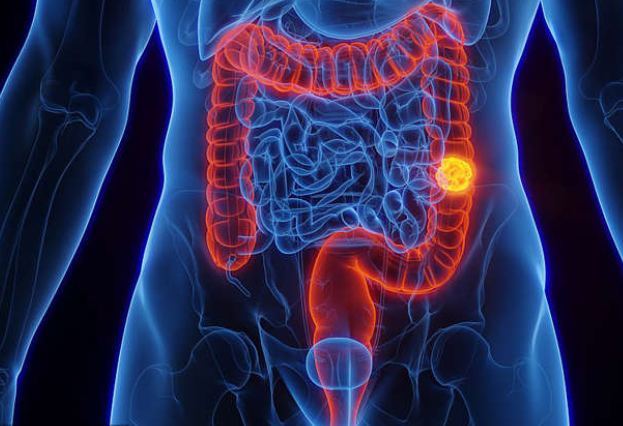Bowel cancer time bomb as more younger people develop it and diet is blamed.
Bowel cancers among under-50s in the UK have increased substantially due to poor diet and obesity - prompting calls to lower the screening age. Researchers have found that while incidents of bowel cancers in adults under 50 have increased over the latest available 10-year period, the levels for other age groups either dropped or remained the same. One study, published in the Lancet Gastroenterology and Hepatology journal, looked at colon and rectal cancer rates in developed countries such as the UK, New Zealand, Canada and Denmark.
In the most recent 10 years observed by the study - 2004-2014 - there were substantial increases, with incidents of colon cancer rising by 1.8 per cent and rectal cancer going up by 1.4 per cent on average each year for those in the UK. The study showed increases among those aged 30-39 for both colon and rectal cancer. The researchers found younger people born in the UK were now at higher risk of bowel cancer than older generations.
Across the same time period, the study found a decrease of 1.7 per cent in incidents of rectal cancer diagnosed in those aged 75 or over. Bowel cancer screening is currently offered on the NHS from the age of 50 in Scotland, 55 or 60 in different areas of England, 60 in Wales and 55 on the HSC in Northern Ireland. Public Health England announced last year it would be lowering the age to 50.
NHS advice suggests younger people with concerns can speak to their GP for advice. Dr Marzieh Araghi, the lead author of the study from the International Agency for Research on Cancer in Lyon, said: “Although the incidence of colorectal cancer in adults younger than 50 years remains much lower compared with that in older age groups, our findings are of concern and highlight the need for action to counteract the rising burden of the disease in younger people. “This rise in incidence among younger generations is likely to be driven in part by the changing prevalence of risk factors, such as obesity and poor diet.”
A second study, published in the GUT journal, found between 1990 and 2016 the number of younger people diagnosed with bowel cancer had risen at a steeper rate after 2004. Among 20 to 29-year-olds, bowel cancer incidents rose from 0.8 to 2.3 cases per 100,000 people between 1990 and 2016.





